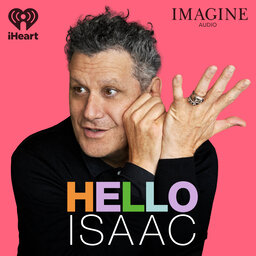Legendary Musician, Belinda Carlisle
Isaac Mizrahi chats with Belinda Carlisle about being a contrarian, the trials and tribulations of being in an all-girl band, her one regret in life and more.
Follow Hello Isaac on @helloisaacpodcast on Instagram and TikTok and catch up with Belinda Carlisle on Instagram @travels_with_mrs_mason.
 Hello Isaac with Isaac Mizrahi
Hello Isaac with Isaac Mizrahi


